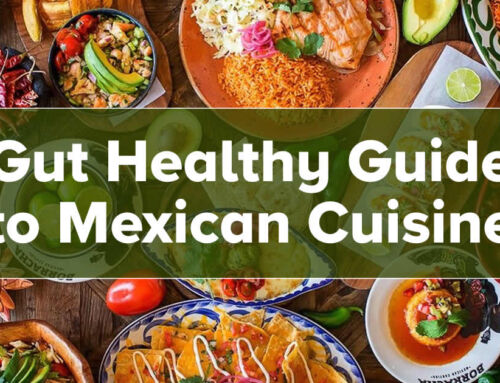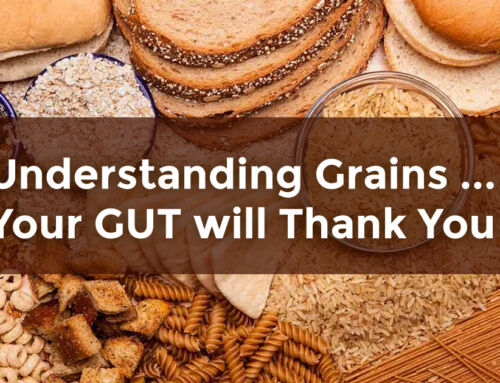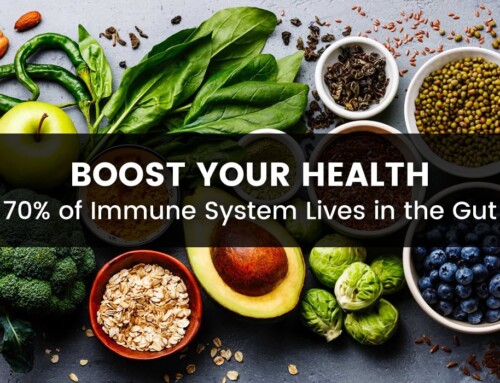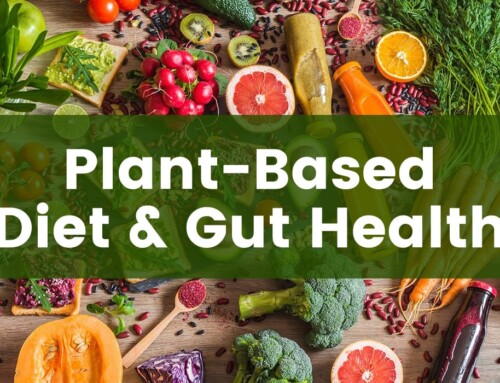What you eat has a significant impact on your digestive health. You’re not just eating for one, you’re also feeding the trillions of bacteria in your gut.
Your gut bacteria play an important role in the development of gastrointestinal diseases such as inflammatory bowel disease (IBD), irritable bowel syndrome (IBS), colon cancer, and antibiotic-associated diarrhea. Eating foods that support your gut bacteria can heal your gut and prevent you from experiencing stomach issues.
This article will explain how food helps balance your gut microbiome. We’ll also highlight 5 homemade, gut-friendly snacks that can boost your digestive health and the foods you should avoid.
Food Helps Balance Your Gut Microbiome
Your gut contains a vast community of microorganisms that influence your health. More than 1 trillion cells belonging to bacteria, fungi, archaea, and protists reside in your gut. Incredibly, these cells contain 100 times more genes than the human genome. This is your gut microbiome.
Some of these microorganisms are beneficial for your health, whereas others are harmful. But your gut maintains a balance to keep you healthy. The foods you eat affect the diversity of your gut bacteria. Basically, your gut bacteria eat the same foods that you do.
Eating foods that increase the growth of beneficial bacteria in the gut can positively impact your digestive health. On the other hand, eating foods that increase harmful bacteria in the gut can lead to health problems. Consuming a diet that balances your gut microbiome is vital to achieving a healthy gut.
5 Gut-Friendly Summer Snacks
Here are some gut-friendly snacks that can combat stomach issues and promote better digestive health.
1. Vegetables With Hummus
Eating vegetables with homemade hummus is a healthy way to satisfy your hunger cravings. Making hummus from scratch is better than buying store-bought ones containing excess sodium and preservatives.
You can make hummus by blending chickpeas, olive oil, tahini paste or ground sesame seeds, fresh lemon juice, and natural spices until smooth. Use fresh vegetables such as broccoli, carrots, and bell peppers for dipping for a healthy and tasty snack.
Chickpeas and sesame seeds are high in protein and fiber. Vegetables are also rich in fiber and are the best carbohydrates you can eat. Dietary fiber resists absorption in the digestive tract and feeds the bacteria in the gut. Adding more fiber to your diet can help your gut bacteria thrive.
Fiber also softens and bulks up the stool, increasing bowel movement frequency and preventing constipation. Eating enough fiber can ensure that your bowel movements stay regular.
2. Raspberry Yogurt Parfait
A yogurt parfait is a light snack that packs a nutritional punch. Layering your yogurt with frozen or fresh berries like raspberries can give you a boost in fiber. You can top your yogurt with a handful of nuts such as pecans and walnuts for a healthy dose of protein, fiber, and fats.
Yogurt contains probiotics, which are live bacteria and yeasts that are intended to have health benefits when consumed. The research on probiotics is mainly limited to animal studies. But there’s evidence that probiotics may improve the growth of beneficial bacteria in the gut. This may relieve symptoms of inflammatory bowel disease and irritable bowel syndrome. In some cases, probiotics may reduce abdominal pain, bloating and gas, constipation, and diarrhea.
Consuming probiotic foods like yogurt can also help restore the balance of bacteria in the gut when taking antibiotics. Eating yogurt naturally gives you access to the potential benefits of probiotics without spending money on supplements.
3. Blueberry Popsicles
Popsicles are a refreshing and welcome treat during the summer months. Making homemade popsicles can help you satisfy your sweet tooth without any guilt. This snack is surprisingly simple to make. You’ll need reusable popsicle molds and popsicle sticks.
You can combine frozen or fresh blueberries, spinach, and yogurt in a blender until smooth. If desired, you can sweeten your popsicles with a little honey or pure maple syrup. Pour the mixture into the molds and freeze them for a few hours until hardened. Adding spinach to this mixture is a great way to get additional servings of vegetables.
Blueberries and spinach are excellent sources of fiber and polyphenols, which are micronutrients that naturally occur in plant-based foods. Polyphenols can reduce inflammation and prevent cellular damage caused by free radicals. Studies show that polyphenols may increase the growth of beneficial gut bacteria and prevent the development of harmful bacterial species. This may protect you from digestive problems.
4. Apples and Peanut Butter
Although simple, pairing apples with peanut butter is a classic snack, you can enjoy anywhere. You can switch out the apples for strawberries if you want a lower sugar option. To mix it up, you can also use different kinds of nut butter, such as almond butter and cashew butter.
Nuts are rich in healthy fats, fiber, and protein. Protein isn’t a significant food source for bacteria in the gut. But consuming enough protein is essential to promote muscle growth and keep the lining of the intestines healthy. This may help prevent conditions such as leaky gut and gut dysbiosis.
5. Banana Overnight Oats
Preparing overnight oats ahead of time is quick and easy. You can throw everything in one container and let it sit in the fridge overnight. There’s no cooking involved!
Adding a banana to your overnight oats naturally sweetens them without adding refined sugars. You can mash the banana and mix it with rolled oats and almond milk until smooth. There are endless options for additional mix-ins, such as chia seeds, peanut butter, and yogurt. Letting your overnight oats sit in the refrigerator for a few hours or overnight helps them become thick and creamy.
Overnight oats are a protein and fiber-rich snack. Bananas contain prebiotic fiber, specifically feeding the beneficial bacteria in the gut. The beneficial gut bacteria play an important role in digestion and overall health. Feeding these bacteria support optimal digestion, nutrient absorption, vitamin synthesis, and immune health.
Thanks to their high fiber content, oats also aid digestion. Snacking on overnight oats can keep you feeling full and help you avoid unhealthy cravings.
Steer Clear of These Foods
You should limit your intake of sugars, artificial sweeteners, and highly processed foods. These foods don’t feed the bacteria in your gut. Instead, they’re quickly absorbed in the small intestine. Consuming a diet high in sugars, refined carbs, and processed foods can deplete the healthy bacteria in your gut and cause widespread inflammation.
You should also avoid foods with unhealthy fats, such as fried and greasy foods. Foods with high-fat content are harder to digest and sit in your stomach longer. This increases the production of stomach acid, which can cause abdominal pain, bloating, nausea, and heartburn.
Processed foods often lack important nutrients for digestive health, such as fiber. If you don’t consume enough fiber, you can develop hard, painful stools or constipation.
What’s more, a diet low in fiber doesn’t provide fuel for your gut microbiome. This can increase pro-inflammatory bacteria in the gut and lead to gut dysbiosis, or an imbalanced gut microbiome. Diets that lack fiber and are high in fats and simple sugars can increase your risk of diseases such as obesity, cancer, and type 2 diabetes.
Preparation Is Key
Eating a healthy diet is always easier when you prepare your food in advance. When traveling, reaching for quick and easy options like fast food can be tempting. Preparing snacks or meals in advance can keep you on track. It’s easier to make healthy choices when you have homemade options on hand.
Eating snacks made with whole foods can improve your digestion and help you avoid painful digestive symptoms. It would help if you steered clear of added sugars, refined carbs, and highly processed foods whenever possible to prevent inflammation in the gut.
We hope this article encourages you to plan ahead for your summer travels and eat more healthy foods! We’d love to see the gut-friendly snacks you’re eating, so please share them on our Facebook page.
Changing your diet is often the first step toward healing your gut. If you’re struggling with digestive problems, you can call my office at 210-615-8308 or request an appointment online.






